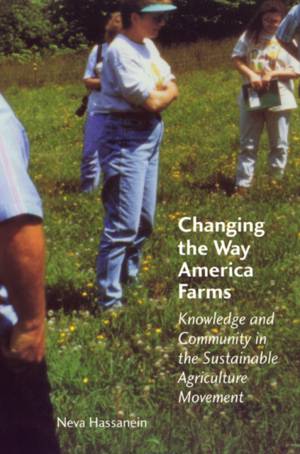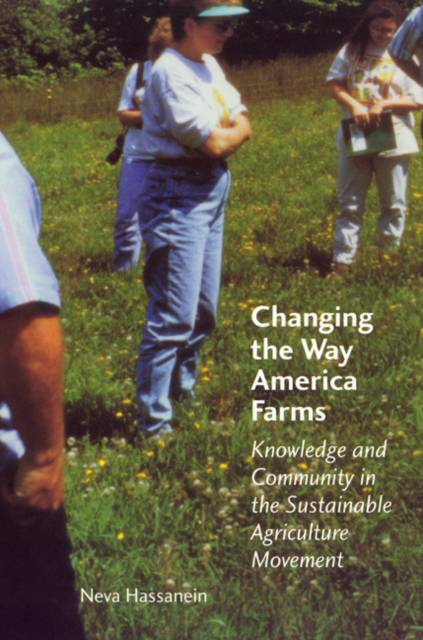
- Afhalen na 1 uur in een winkel met voorraad
- Gratis thuislevering in België vanaf € 30
- Ruim aanbod met 7 miljoen producten
- Afhalen na 1 uur in een winkel met voorraad
- Gratis thuislevering in België vanaf € 30
- Ruim aanbod met 7 miljoen producten
Zoeken
Changing the Way America Farms
Knowledge & Community in the Sustainable Agriculture Movement
Neva Hassanein
€ 53,45
+ 106 punten
Omschrijving
Changing the Way America Farms traces the manner in which alternative farmers have developed and exchanged their own personal, local knowledge as a basis for moving toward an agricultural system that is ecologically sound, economically viable, and socially just. Neva Hassanein studies the patterns of local and regional networks in Wisconsin that sprang up to disseminate new and viable agricultural methods. She argues that these networks have in many ways become the foundation of the sustainable agriculture movement. Hassanein focuses on two organizations: the Ocooch Grazers Network, a group of dairy farmers who practice intensive rotational grazing, and the Wisconsin Women's Sustainable Farming Network. The different lived experiences of particular members in each group shaped the ways local knowledge was generated and exchanged. Hassanein considers the broader implications of this kind of local-level, collective activity centered around the creation and exchange of agricultural knowledge. In rejecting the all-knowing expertise characteristic of scientific reports and extension services, network members instead created heterogeneous systems based on the exchange of information among a community of farming practitioners. These informal networks do not completely reject agricultural science, but they do suggest ways of democratizing knowledge production for sustainable agriculture.
Specificaties
Betrokkenen
- Auteur(s):
- Uitgeverij:
Inhoud
- Aantal bladzijden:
- 218
- Taal:
- Engels
- Reeks:
- Reeksnummer:
- nr. 12
Eigenschappen
- Productcode (EAN):
- 9780803273214
- Verschijningsdatum:
- 1/11/1999
- Uitvoering:
- Paperback
- Formaat:
- Trade paperback (VS)
- Afmetingen:
- 153 mm x 228 mm
- Gewicht:
- 322 g

Alleen bij Standaard Boekhandel
+ 106 punten op je klantenkaart van Standaard Boekhandel
Beoordelingen
We publiceren alleen reviews die voldoen aan de voorwaarden voor reviews. Bekijk onze voorwaarden voor reviews.











